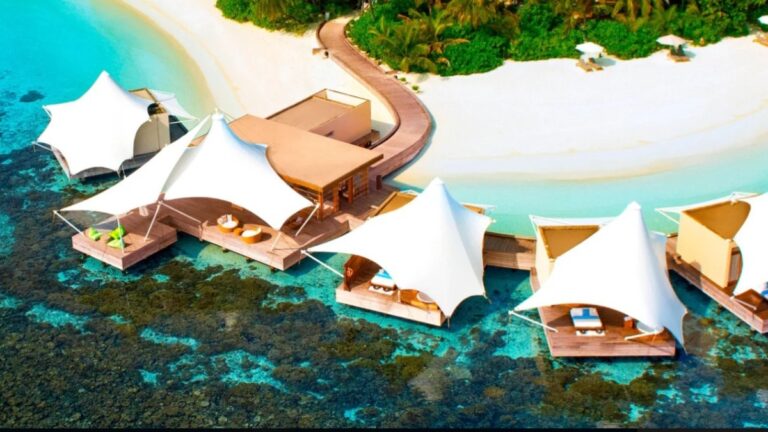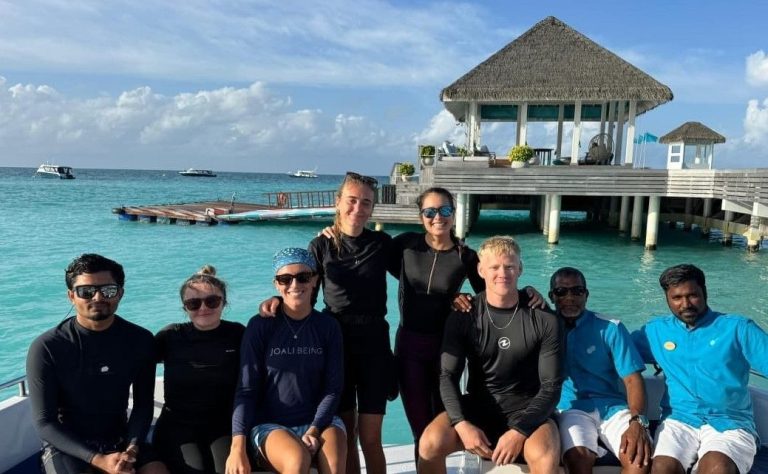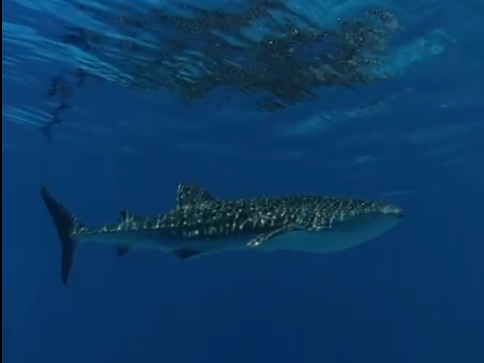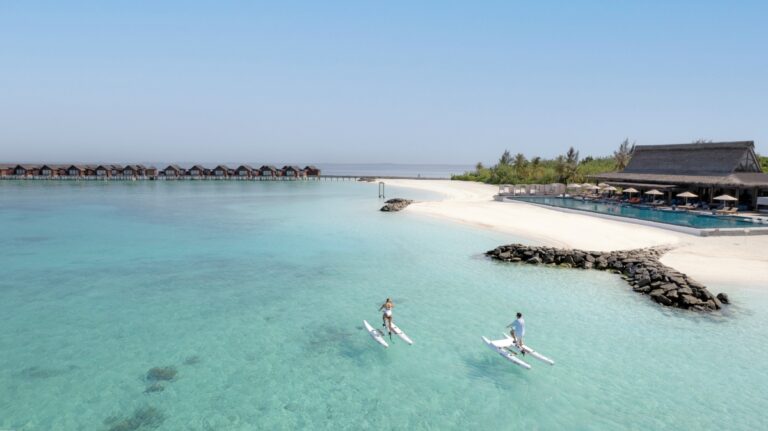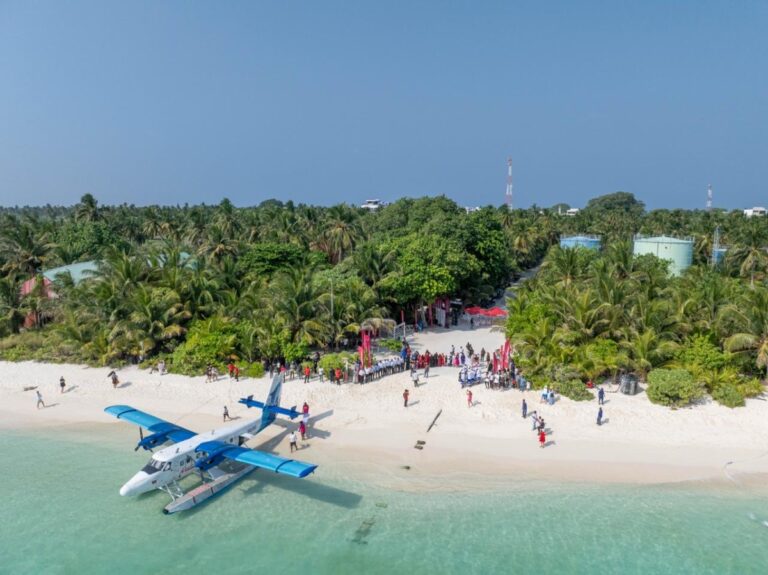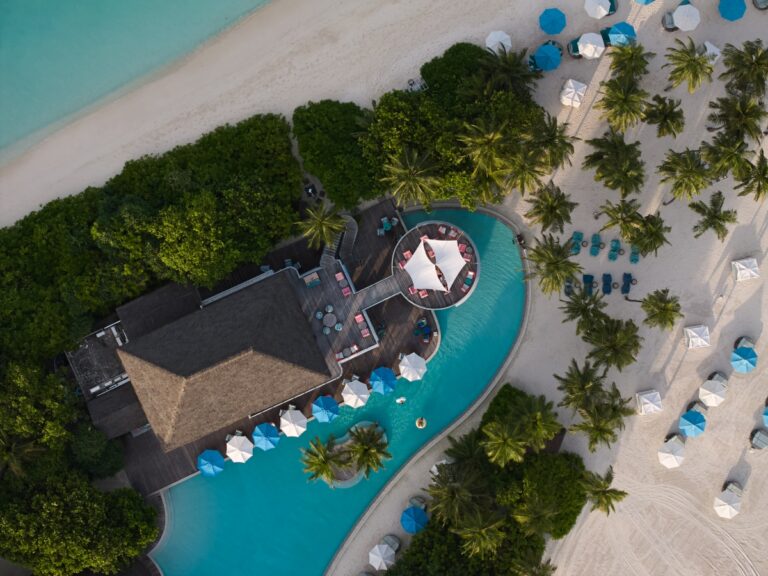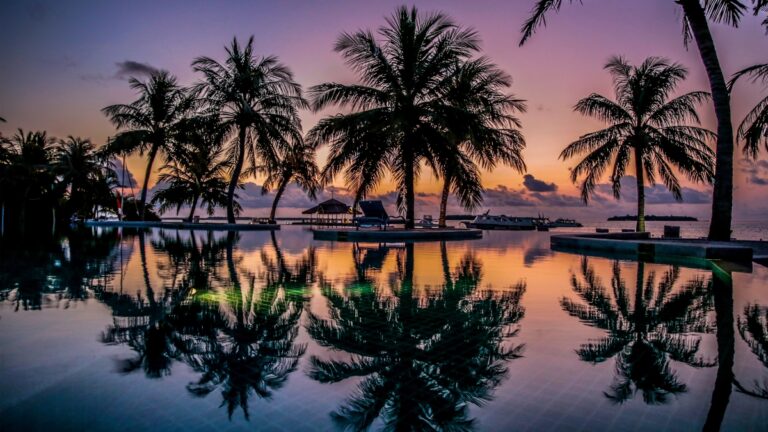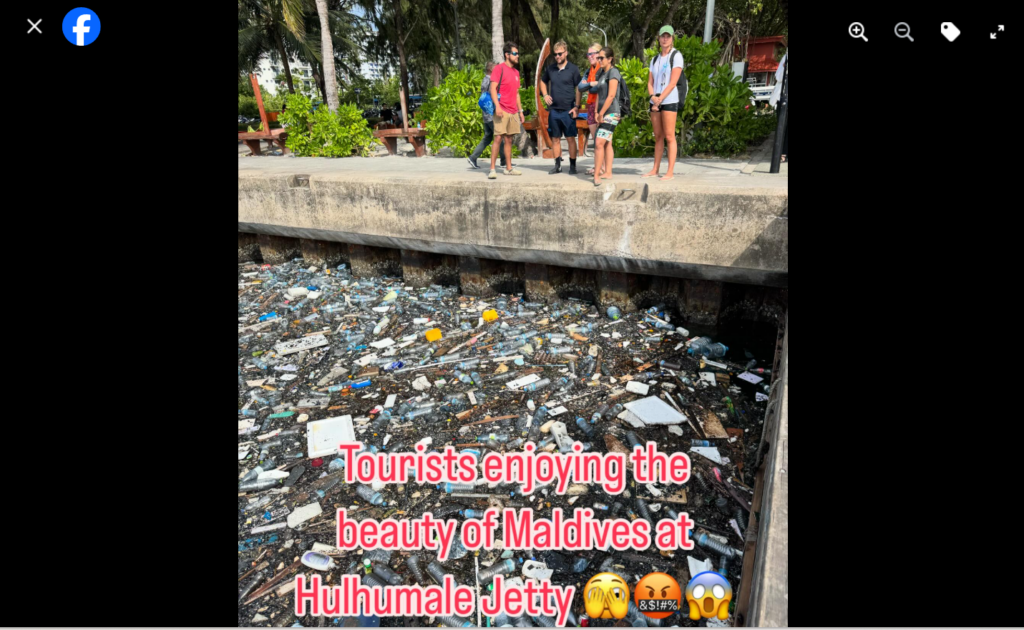
Viral Facebook post leads to volunteers cleaning Hulhumale harbour but frustrations remain over littering
It all began with a Facebook post on November 15th featuring a photo of dismayed tourists staring at piles of plastic water bottles, polystyrene and other garbage clogging up Hulhumale harbour. The caption read: “12$ Green Tax for what?”, implying that the environmental tax levied on all tourists was not being put to use.
Scuba diver Emilio Mignoli’s Facebook post quickly went viral, as calls for action from tourists and Maldivians alike grew.
The Hulhumale harbour area is a major departure point for diving excursions and an important arrival point for tourists booked at guesthouses in Huhumale, as well as the principle hub for accessing and disembarking from liveaboards – not to mention it is also a transit hub for people travelling by ferry between Male’ and Hulhumale’.
One of the tourists in the photo, who identified himself as Pierre Dufour in the comments, said: “It’s actually us in this picture and we were really disappointed about this situation. We are divers and we do beach cleaning frequently and we were there wanting to clean to protect your environnement. I don’t want say bad things, but we were really sad about this situation.”
Many Maldivians joined the calls for action to be taken over the littering, with one saying: “The problem is not only with the government…The problem is with the uncivilized citizens who do this. As citizens, we have some responsibilities too”.
Following the post going viral, Emilio, who has been based in the Maldives since 1991, told Manta Media Maldives: “I’m in Hulhumale harbour every day and most of the time the area is quite dirty – not just the sea but the area of land around the sea as well. It’s not only plastic pollution, which is obviously the worst kind, but also people try to hide garbage in the vegetation as well.”
The attention the Facebook post drew to the neglected conditions around Hulhumale harbour led to Emilio and a group of volunteers deciding to organise a clean-up on November 18th.
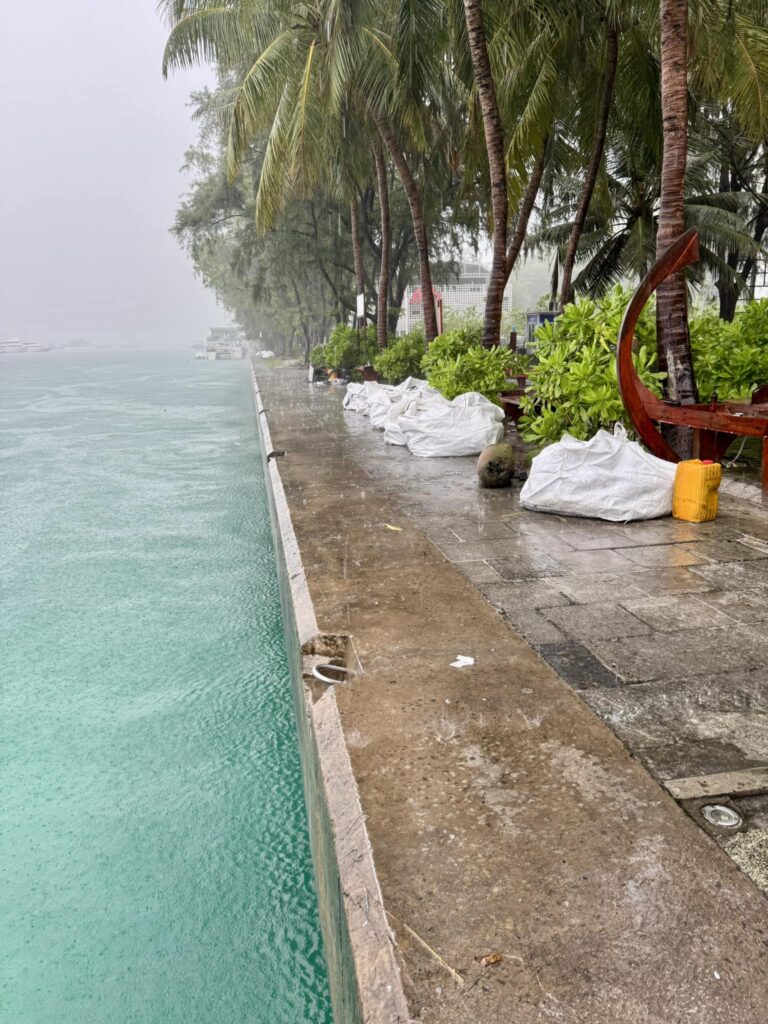
However, Emilio believes a combination of policing, education and more diligence on the part of the Waste Management Corporation Limited (WAMCO) is the key to solving the littering problem in the long term. “There’s no control or supervision over people littering in the area from the people in charge of cleaning,” he said.
“Regarding the litter in the sea, WAMCO is not doing so well, particularly when transporting garbage on boats, and the private boats taking garbage from resorts lose part of their cargo during trips but nobody cares about it. Let’s just say littering is not a major issue for the government.”
What is the Maldives’ Green Tax?
Maldives Inland Revenue Authority states that all tourists in the Maldives, regardless of whether they are staying in a resort, guesthouse or liveaboard, must pay Green Tax. It is currently set at $6 USD per person per night, but the rate will increase to $12 USD from January 2025, except at hotels in residential areas or guesthouses with fewer than 50 rooms, which will continue charging the reduced rate of $3 USD per day in Green Tax.
The Maldives currently generates an average of $6,469,388 USD a month from Green Tax. When Green Tax was launched in 2015, the former Minister of Tourism, Ahmed Adheeb, said: “Revenue generated from the tax will go into managing the waste from local resorts and other islands”.
Criticism from members of the public followed over the lack of tangible results, so to improve transparency, the Maldives’ Ministry of Finance now publishes a monthly Green Fund Report. According to the report, Green Tax is spent on projects such as coastal protection, installation of water supplies, sewerage systems, and a waste-to-energy pilot project. The report was initially intended to be published monthly, however, the latest update on the website appeared in March 2024.
